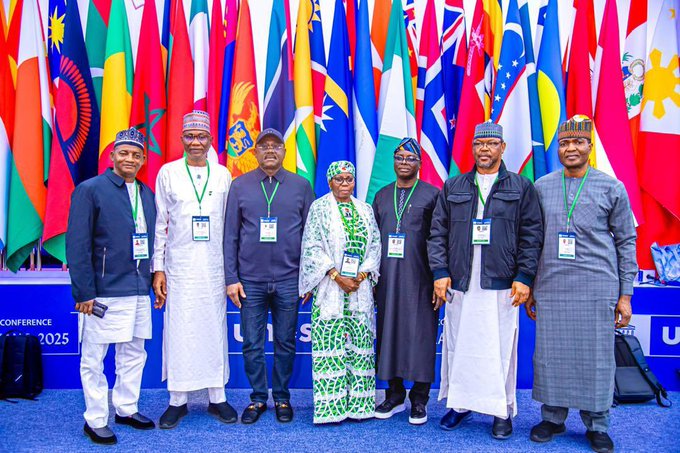The United Nations Educational, Scientific and Cultural Organisation (UNESCO) has approved the designation of the International Media and Information Literacy (MIL) Institute in Abuja, Nigeria, as a UNESCO Category 2 Institute.
This historic decision, finalised at the 43rd General Conference of the Communication and Information (CI) Commission in Samarkand, Uzbekistan, positions the Institute as the first of its kind globally.
The approval grants Nigeria a pivotal role as a global leader in the fight against misinformation and disinformation, empowering the nation to spearhead international research, policy dialogue, and capacity-building in the critical field of digital literacy.
READ ALSO: Congo seeks Nigeria’s support for UNESCO candidacy, strengthening bilateral ties
In his address to the UNESCO conference, the Minister of Information and National Orientation, Mohammed Idris, hailed the decision as a “strong vote of confidence in our nation.”
Idris affirmed Nigeria’s commitment to this new global responsibility, stating that the Abuja-based institute will serve as an international observatory and hub to equip individuals and communities worldwide to “navigate the digital age with discernment and confidence.”
He tied the achievement directly to the government’s vision: “The Nigerian government, under the leadership of President Bola Tinubu, is committed to fostering a society where responsible free speech is seen as the engine of national progress,” Idris said.
“A central pillar of our strategy is the democratisation of digital opportunities, with media and information literacy as the key driver,” he added.
The minister noted that this landmark achievement is the culmination of a dedicated effort that began in October 2022 when Nigeria hosted the 10th Edition of the Global Media and Information Literacy and Feature Conference in Abuja, where the commitment to establish a UNESCO International MIL Institute was first made.
Idris congratulated Tinubu, stating the success reflects the President’s commitment to the Nigerian project, aptly encapsulated in the Renewed Hope Agenda, calling it “a big win for all Nigerians and the continent of Africa.”
Pledging continued collaboration with UNESCO, the minister assured the global body that the government would meet the Institute’s infrastructure needs and strengthen its governance capacity by assembling a multidisciplinary team of experts to execute its global mandate.
The formal launch of the International Media and Information Literacy Institute is scheduled for February 2026 in Abuja, an event expected to be graced by UNESCO officials, member states, and strategic partners.
READ ALSO: UNESCO REF appeals to Tinubu to tackle child labour in Nigeria
Among the Nigerian officials present at the 43rd UNESCO General Conference to witness the designation were the Senate Committee Chairman on Information and National Orientation, Kenneth Eze, the House Committee on Information, National, Ethics and Values Chairman, and Olusola Fatoba, the Director General of the Federal Radio Corporation of Nigeria (FRCN).
Others are Mohammed Bulama (representing the Minister), the Director General of the Nigerian Television Authority (NTA), Malam Abdulhamid Salihu Dembos, the Director General of the Advertising Regulatory Council of Nigeria (ARCON), Olalekan Fadolapo, the Director General of the Voice of Nigeria (VON), Jibrin Baba Ndace, and the Ambassador of Nigeria to UNESCO, Hajo Sani.



